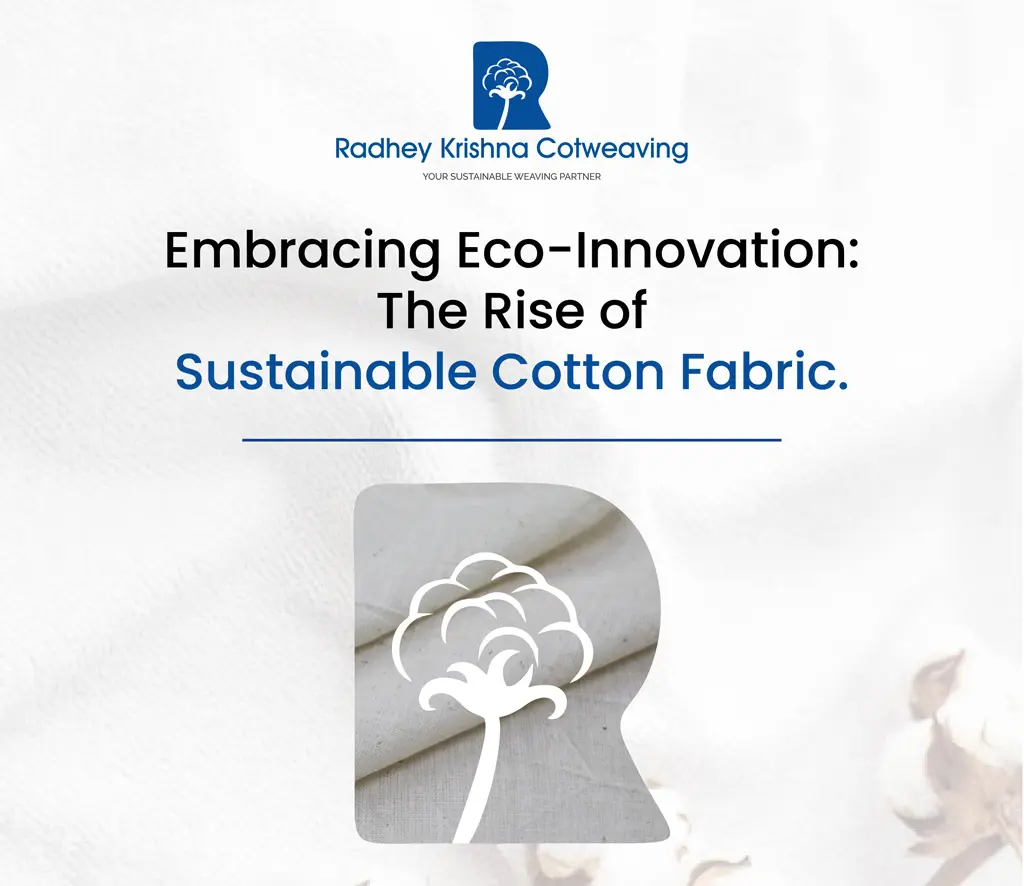- Home
- About
- Products100% Cotton Fabric100% Polyster FabricCotton Polyster BlendJUCO FabricHemp FabricChambray/Yarn DyedDyed Finished Fabric
Single Fill Duck
Army Duck Fabric
Numbered Duck
- 200 GSM Cotton Polyester Mix Canvas Fabric
- 220 GSM Cotton Polyester Mix Canvas Fabric
- 290 GSM Cotton Polyester Mix Canvas Fabric
- 295 GSM Cotton Polyester Mix Canvas Fabric
- 315 GSM Cotton Polyester Mix Canvas Fabric
- 375 GSM Cotton Polyester Mix Canvas Fabric
- 390 GSM Cotton Polyester Mix Canvas Fabric
- 470 GSM Cotton Polyester Mix Canvas Fabric
- Eco Weav
- Re Weav
- Certificates
- Contact Us

Embracing Eco-Innovation: The Rise of Sustainable Cotton Fabric
About Sustainable Cotton Fabric
The sustainable cotton fabric represents a significant shift towards environmentally friendly textile production. It is derived from cotton grown using methods that have a low impact on the environment, minimizing the use of harmful pesticides and fertilizers, and often relying on natural agricultural techniques.
This approach not only conserves biodiversity and reduces chemical runoff but also promotes better water conservation through improved soil health. By adhering to these sustainable practices, the production of sustainable cotton fabric ensures a reduced ecological footprint, making it a preferred choice for consumers looking to make responsible and ethical fashion choices.
The Need for Sustainable Cotton Fabric
Radhey Krishna Cotweaving's Sustainable Practices
Benefits of Sustainable Cotton Fabric
Choosing sustainable cotton fabric offers numerous advantages.
Environmentally, it supports biodiversity and ecological balance, reducing the quantity of water and chemicals typically required in conventional cotton farming.
For consumers, fabrics made from sustainable cotton are free from allergens and harmful chemicals found in non-organic cotton, offering a healthier choice for everyday clothing and textiles.
The Future of Sustainable Cotton in Fashion
The demand for sustainable cotton fabric is on the rise, driven by an increasingly conscious consumer base and the fashion industry’s growing commitment to sustainability. Radhey Krishna Cotweaving is well-positioned to meet this demand, thanks to its proactive approach to adopting sustainable practices. As more brands and consumers opt for environmentally friendly products, our role in shaping the future of sustainable fashion becomes ever more pivotal.
Conclusion
Choosing sustainable cotton fabric is a powerful step towards a more sustainable future in fashion and textiles. Radhey Krishna Cotweaving, with its deep commitment to eco-friendly production practices, exemplifies the potential of the textile industry to influence positive environmental and social change.
Join Us in Pioneering Sustainable Fashion
Join Radhey Krishna Cotweaving in transforming the textile industry by choosing sustainable cotton fabric for your next project. Explore our range of eco-friendly fabrics, and let’s work together to make sustainability the standard in fashion. Contact us today to learn more about our products and how we can help you achieve your sustainability goals. Together, we can weave a greener future.

